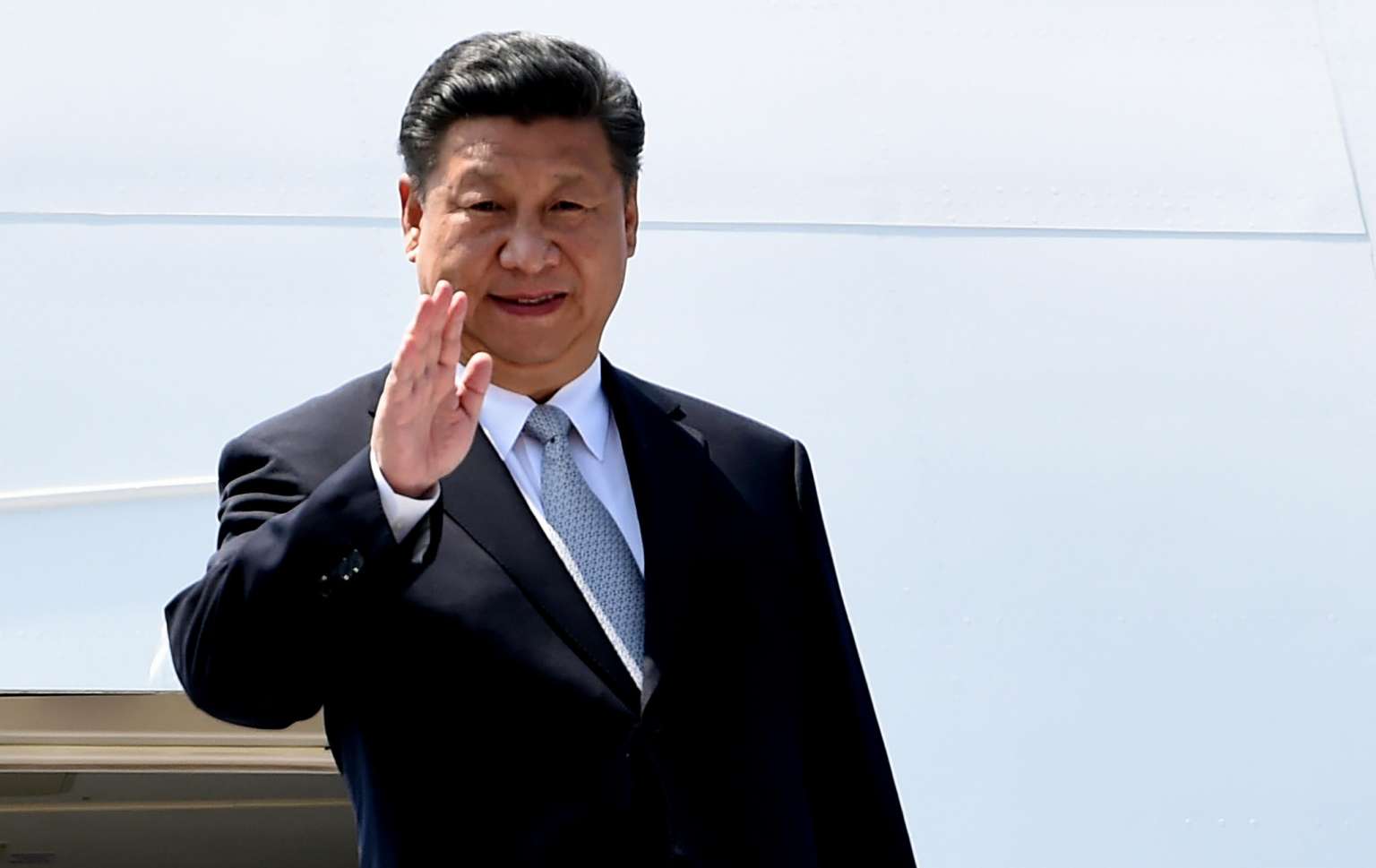President Xi Jinping named as Chinese Communist Party's ‘core’ leader
Sign up now: Get insights on Asia's fast-moving developments

China President Xi Jinping gestures on his arrival at the airport in Goa on Oct 15, 2016.
PHOTO: AFP
BEIJING - The Chinese Communist Party (CCP) has formally named President Xi Jinping as the "core" of the party leadership, a title that carries deep political meaning and is set to shape the power play in the run-up to a leadership reshuffle next year.
A communique released on Thursday (Oct 27) evening at the close of a four-day meeting by senior cadres used the phrase "the central leadership with Comrade Xi Jinping as its core".
It's the first time the title "core leader" has been used on Mr Xi, placing him in the same group as Mao Zedong, Deng Xiaoping, and former president Jiang Zemin.
The meeting also issued a revised code of conduct for party cadres, targeting even those at the apex Politburo Standing Committee (PSC), as part of Mr Xi's bid to tighten party discipline and deepen his power base ahead of the 19th Party Congress next year when he will form a new leadership team.
The meeting - the sixth plenary session of the 376-member Central Committee - also approved updates to a set of regulations on intra-party supervision.
The closed-door meeting in Beijing is one of the seven plenums held in the course of the Central Committee's five-year term.
While plenums are usually predictable affairs, there is higher interest this year as it signals the start of preparations for the 19th Party Congress and could offer clues on the strength of top leaders in securing plum roles for their allies.
Five of the seven Politburo Standing Committee (PSC) members - except Mr Xi and Premier Li Keqiang - and a third of the 25-member Politburo are expected to step down after hitting the unofficial retirement age of 68 years.
Analysts say that as "core" leader, Mr Xi will have a stronger hand in pushing reforms, especially in areas where he has met internal resistance, such as military restructuring.
The "core leader" concept began in the aftermath of the Tiananmen Incident in 1989 when Deng described Mao, himself and then new CCP chief Jiang Zemin as the nucleus of their respective generations. Deng's aim was to empower Mr Jiang amid a national crisis.
The title did not pass down to Mr Jiang's successor Hu Jintao, likely a reflection of how the latter was suppressed during his 10-year reign from 2002 by Mr Jiang. Official media instead used the phrase "the Central Committee with Comrade Hu Jintao as general secretary".
Talk has surfaced since late last year that Mr Xi would be named the "core" - or he xin in Chinese - after some 20 provincial party chiefs openly used the title on him.
But the buzz subsided after the title was not mentioned at the national parliamentary session in March. In recent months, speculation resumed after Mr Xi's aide Li Zhanshu reportedly described his boss as the "core" at a closed-door meeting in end-June.
On Oct 18, the People's Tribune, a magazine linked to People's Daily, the CCP's official mouthpiece, said in a report that China needed a strongman leader like Mao Zedong and Deng Xiaoping, and that Mr Xi fitted the bill.
It made the call on the basis of a survey of 15,600 respondents as well as interviews with 400 scholars and officials earlier this year on the importance of having a leadership "core".
Analysts say Mr Xi faced considerable challenges in getting the new title, stemming from fears within the party that it could lead to the end of the collective leadership framework put in place by Deng.


